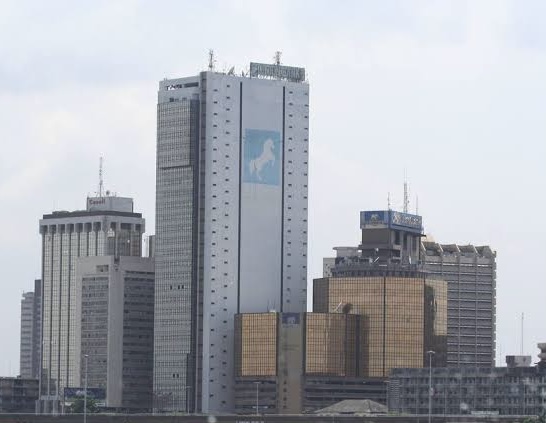
Nigeria’s major telecom companies—Airtel, MTN, and Glo—are widely recognised for network reach and innovation. Less well understood, however, is how their HR practices influence performance, retention, and employee satisfaction. Drawing on publicly available employee feedback (as of August 2025) and selected academic studies, this article offers a fair-minded comparison, highlighting both strengths and areas for improvement.
Airtel Nigeria: Recognition Meets Growing Pains
Airtel Nigeria received the CIPM Best HR Practices (Telecoms) award in 2012 [1], with subsequent engagement initiatives such as a reported “HR Week” event in 2018 [2]—signalling intentional culture-building. Employee reviews on Glassdoor and Indeed note positives such as “a very positive work environment,” “good training,” and “yearly salary reviews” [3]. Several reviewers highlight a supportive social atmosphere and wellness considerations.
As of August 2025, Glassdoor ratings for Airtel Nigeria stand at approximately 3.4/5 overall, with work–life balance at 2.7/5 [4]. Some reviews describe long hours, job-security concerns, and inconsistent middle-management practices. One former Area/Regional Sales Manager wrote: “The job is deadly tasking… no work–life balance… no job security.” [3]
MTN Nigeria: Data-Driven Strength with Retention Limits
MTN Nigeria records approximately 4.1/5 overall on Glassdoor, with 94% of reviewers saying they would recommend the company [5]. Reviewers praise its remuneration, comprehensive health cover, and learning opportunities. One noted: “Fantastic place to work and grow… robust remuneration package… good health insurance.” [5] Academic work on MTN Nigeria discusses structured training, coaching, and mentoring programmes as part of its career-development efforts [6].
Work–life balance ratings (~3.5/5) trail culture scores (~4.1/5) [5]. Some employees report high performance pressure and limited upward mobility, particularly for internal candidates compared with external hires [5].
Glo Nigeria: Stable Culture with Training Gaps
A 2023 study on Globacom in South-East Nigeria links aspects of workplace culture to improved employee performance and engagement [7]. Indeed reviews from Nigerian employees cite “job security,” a “conducive and well-organised” environment, and an emphasis on growth [8].
Glassdoor ratings (as of August 2025) show work–life balance at ~2.7/5 and culture/values at ~2.6/5, with compensation scoring similarly [9]. Several employees report minimal formal onboarding, saying they were “required to learn on the job” [8]. An academic assessment of Globacom’s sales-training programmes found that while most staff were aware of training, many questioned the frequency and relevance [10].
Comparative Analysis Table
| Category | Airtel Nigeria | MTN Nigeria | Glo Nigeria |
| Overall Glassdoor Rating | 3.4/5 | 4.1/5 | 2.9–3.0/5 |
| Work–Life Balance | 2.7/5 | 3.5/5 | 2.7/5 |
| Culture & Values | 3.5/5 | 4.1/5 | 2.6/5 |
| Compensation & Benefits | 3.3/5 | 4.0/5 | 2.6/5 |
| Key Strengths | HR awards, structured engagement, training access | Robust pay & benefits, data-driven HR, structured career development | Job security, stable culture, internal trust |
| Key Challenges | Poor work–life balance, job insecurity, inconsistent middle management | Performance pressure, limited internal mobility | Limited formal training, below-average compensation |
Strategic Implications
Airtel Nigeria is visibly investing in HR branding and engagement. Addressing role fatigue, job-security concerns, and management consistency would consolidate its gains. MTN Nigeria demonstrates how data-driven HR and comprehensive benefits can sustain high culture scores, but must expand leadership pipelines and address internal mobility to keep retention strong. Glo Nigeria benefits from continuity and internal trust, but should formalise training frameworks and make compensation more competitive to attract and retain top talent.
Hypotheses for Further Study
- HR Recognition Correlation – Companies with credible HR awards exhibit stronger employee engagement and lower attrition.
- Analytics-Driven Outcomes – Firms using HR analytics for talent decisions outperform peers in retention and mobility.
- Training Relevance Impact – Perceived relevance of training content is directly linked to employee satisfaction and performance.
Conclusion
Airtel, MTN, and Glo each showcase different HR approaches: Airtel in engagement and recognition, MTN in structured development and benefits, and Glo in cultural stability. Across all three, however, common levers remain—work–life balance, training relevance, leadership development, and compensation equity. Elevating these areas could shift HR from being simply functional to being a decisive competitive advantage in Nigeria’s telecom sector.
About the Author
Dr. Olufemi Ogunlowo is the CEO of Strategic Outsourcing Limited, a leading provider of personnel and business process outsourcing services in Nigeria. He is also a regular columnist on employment and workforce strategy.
Footnotes
[1] Chartered Institute of Personnel Management of Nigeria (CIPM), Award Winners Archive, 2012.
[2] Airtel Nigeria HR Week coverage – various online HR event bulletins, 2018.
[3] Glassdoor & Indeed reviews for Airtel Nigeria, accessed August 2025.
[4] Glassdoor “Airtel Nigeria” ratings snapshot, August 2025.
[5] Glassdoor “MTN Nigeria” ratings snapshot, August 2025.
[6] Adewunmi, F., et al. (2021). HR Analytics and Talent Development in Nigerian Telecoms, Journal of Management Sciences.
[7] Nwankwo, P. (2023). Workplace Culture and Productivity in Globacom Nigeria, International Journal of Business Research.
[8] Indeed reviews for “Globacom Nigeria,” accessed August 2025.
[9] Glassdoor “Globacom Nigeria” ratings snapshot, August 2025.
[10] Okafor, I. & Eze, C. (2022). Effectiveness of Sales Training Programmes in Nigerian Telecom Firms, Journal of Business and Social Inquiry.












